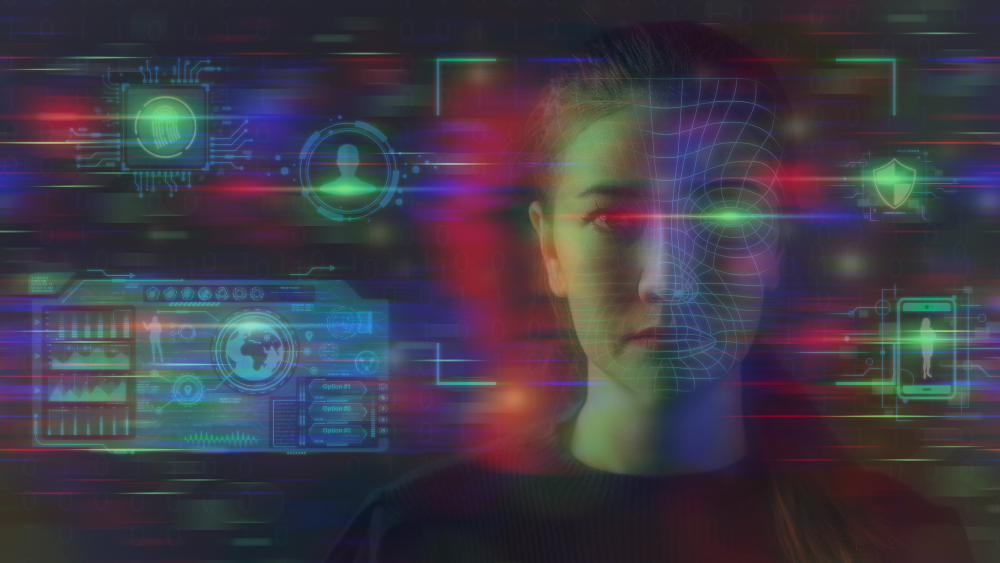Blog; The Dangers of Artificial Intelligence: Deepfakes and Malicious Actors

Written by:
HAE Insurance Services
EHA Insurance Services
. 30th June 2025

Over the past couple of years, the world has watched as artificial intelligence (AI) and deepfake technology have rapidly advanced, bringing with them a whole range of possibilities for their use, both good and bad. But what happens when you can almost perfectly digitally recreate a person’s likeness, or create incredible photographs from nothing? These technologies have opened the door to new, real-world risks, including misinformation, reputational damage, and fraud.
What are deepfakes?
Deepfakes are media that depict real or non-existent people. They are created by AI and may be in the form of video, images, or audio. While it can be used in a non-malicious way, such as by film studios for special effects, it can also be used to trick people into believing that the deepfake’s subject has said or done something that they haven’t.
The rise of AI in cybercrime and malicious activities
As can be expected with a technology that allows for manipulation of digital reality, AI has also become a tool for cybercriminals.
In 2023, a hacker used a voice deepfake to impersonate an IT team member and trick another employee into providing them with a multi-factor authentication (MFA) code. This then allowed the hacker to add their device to the employee’s account and access company data.
In another incident, a finance worker was tricked into transferring $25 million to scammers after the cybercriminals used AI to pose as the company’s chief financial officer in a video call.
With the use of deepfake technology, it’s now easier than ever for cybercriminals to impersonate people and manipulate others into handing over cash, data or even obtain hired equipment fraudulently. However, some parties have employed the use of AI to fight cybercrime and scammers. For example, O2 have created an “AI grandma” named Daisy to waste the time of phone scammers and keep them from extorting money from real people.
The dangers of artificial intelligence to businesses and individuals
Deepfake technology also poses a risk to individuals and hire businesses, thanks to the ease of image, video and audio manipulation and generation. As discussed in the examples above, deepfakes can be used to manipulate staff and trick them into allowing scammers access to company data or money. But they can also cause reputational damage, as it has never been simpler to create and distribute fake media that can paint a business and/or its employees in a bad light.
As AI continues to develop and deepfakes become more realistic, there is also an increased difficulty in verifying authenticity. This can lead people who are relatively internet-savvy to be tricked into spreading fake media that they believe is real, in turn damaging the reputation of the individual or business featured. In a lighter example, in 2023 a fake image of Pope Francis wearing a Balenciaga puffer jacket circulated online and received over 20 million views.
How to spot a deep fake and use of AI
So how do you detect a deepfaked video? According to MIT Media Lab and The Guardian, you should look out for the following:
There are also online tools and programs such as SightEngine that you can use which will tell you the likelihood of AI being used to create the video, but these tools can offer very varied results.
How to protect your hire business against deepfakes and AI used by malicious actors
As well as encouraging them to use AI detection tools, you should make sure your employees receive regular and extensive employee training on cyber safety. While the hacker in the first example we discussed used deepfaked audio to trick the employee, they should not have given out their MFA token over the phone, even if they believed it was a member of the IT team. Using multi-factor authentication wherever possible should help secure your business’s data.
Cyber insurance is also important. In the event that a hacker does obtain access to your systems, having cyber insurance in place will provide compensation for loss of income, including where caused by damage to your reputation.
Protect yourself against the risks of AI
As AI continues to evolve, so do the associated risks. Social media sites such as Facebook are tagging deepfake videos as fake, and other websites are also putting measures in place, but because of their believability, there’s always the possibility that deepfakes can slip through the cracks and so it’s up to the user to be vigilant when browsing online.
Cyber insurance can help protect you in the event of a cyberattack, which becomes an increasing likelihood with the number of ways hackers can manipulate and extort people online. To find out more about cyber insurance, talk to your dedicated advisor today.
Consistent with our policy when giving comment and advice on a non-specific basis, we cannot assume legal responsibility for the accuracy of any particular statement. In the case of specific problems, we recommend that professional advice be sought.
Checking ID
Generally ID should be checked in person, and if in doubt verify details with the provider. Gov.uk has some useful information regarding this.
Conclusion
Every HAE EHA member qualifies for a free annual insurance review, to make sure your cover is as good as it should be. For a no obligation review or to receive a quotation, please call HAE Insurance Services or EHA Insurance Services on 0330 018 2299 or email insuranceservices@hae.org.uk.
HAE Insurance Services and EHA Insurance Services are trading names of Advisory Insurance Brokers Limited, which is authorised and Regulated by the Financial Conduct Authority (Firm Reference Number 313250). Registered in England and Wales, Company No. 4043759. Registered Address: 2 Minster Court, Mincing Lane, London, EC3R 7PD.